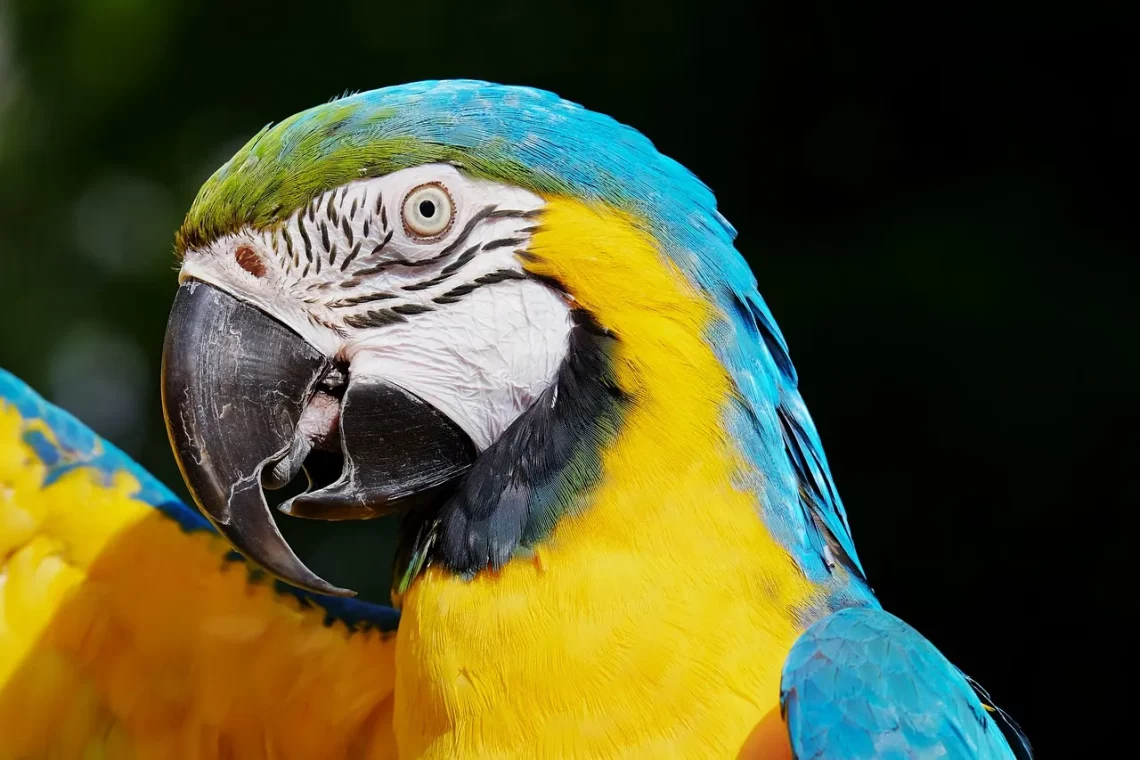
The Charming Suncheek Conure: A Guide to Care and Companionship
The Suncheek Conure, known for its vibrant colors and playful personality, has gained popularity among bird enthusiasts and pet lovers alike. These small parrots, native to South America, are characterized by their charming demeanor and social nature. With their striking appearance, featuring bright yellow and green plumage, they are not just captivating to look at but also make excellent companions.
Owning a Suncheek Conure can be a delightful experience, filled with laughter and joy, as they are known for their playful antics and affectionate behaviors. These birds possess a unique ability to bond closely with their human caregivers, often mimicking sounds and displaying a wide range of emotions. Their lively and engaging nature makes them a favorite choice for families, singles, and anyone looking for a dynamic pet.
However, like any pet, Suncheek Conures require proper care and attention to thrive in a home environment. Understanding their needs, social behavior, and dietary requirements is essential for ensuring a happy and healthy life for these beloved birds. In addition, providing an enriching environment where they can explore, play, and interact is crucial for their well-being. With the right approach, a Suncheek Conure can become a cherished member of the family, bringing joy and companionship for many years.
Understanding the Suncheek Conure’s Personality
Suncheek Conures are known for their vibrant and extroverted personalities. These birds are highly social creatures that thrive on interaction, both with their human companions and other birds. Their playful nature often leads them to engage in various activities, such as climbing, playing with toys, and even performing amusing tricks.
One of the defining characteristics of the Suncheek Conure is its affectionate behavior. They tend to form strong bonds with their owners, often seeking attention and companionship. This desire for social interaction means that potential owners should consider their availability to spend time with the bird. A lonely Conure may become bored or develop behavioral issues, such as excessive screaming or feather plucking.
Additionally, Suncheek Conures are intelligent birds that require mental stimulation. Providing them with a variety of toys, puzzles, and opportunities for play can help keep their minds engaged. Interactive toys that encourage foraging and problem-solving are particularly beneficial. Regular socialization is also vital; engaging with your Conure through playtime, training, and gentle handling can strengthen your bond and promote a happy, well-adjusted bird.
It’s important to note that while these birds are known for their charming disposition, every individual has its own unique personality. Some may be more outgoing and adventurous, while others might be shy or reserved. Understanding your bird’s temperament will help you tailor your care approach to meet its specific needs.
Creating a Suitable Environment for Your Conure
Creating a comfortable and stimulating environment is crucial for the well-being of your Suncheek Conure. A spacious and safe cage is the foundation of a healthy habitat. The cage should be large enough for the bird to move around freely, spread its wings, and play. Ideally, the dimensions should be no less than 24” x 24” x 36”, though bigger is always better.
When setting up the cage, consider the placement of perches, toys, and food dishes. Perches made from natural wood are preferable, as they offer different textures and diameters, promoting foot health and providing opportunities for climbing. Toys are essential for mental stimulation; include a mix of chew toys, swings, and foraging items to keep your Conure entertained. Rotate these toys regularly to maintain interest.
The location of the cage is also important. Place it in a central area of your home where your Conure can observe daily activities. Birds are social creatures and enjoy being part of the family. However, avoid placing the cage in drafty areas or direct sunlight, as extreme temperatures can be harmful.
In addition to the cage, providing an area for supervised out-of-cage time is beneficial. This allows your Conure to stretch its wings and explore in a safe environment. Bird-proof the area by removing any potential hazards, such as toxic plants, small objects, or open windows.
Finally, maintain a clean environment by regularly changing the cage liner, cleaning food and water dishes, and ensuring the overall hygiene of the living space. A clean habitat not only prevents illness but also promotes a happy and thriving Conure.
Dietary Needs and Nutrition
Feeding your Suncheek Conure a balanced and nutritious diet is essential for its overall health and longevity. In the wild, these birds consume a varied diet that includes fruits, vegetables, seeds, and nuts. Replicating this diverse diet at home is crucial for meeting their dietary needs.
A high-quality pellet formulated specifically for parrots can serve as the staple of their diet. Pellets provide essential vitamins and minerals that may be lacking in seed-based diets. However, it’s important to supplement pellets with fresh fruits and vegetables. Safe options include apples, carrots, spinach, broccoli, and berries. Introduce new foods gradually and monitor your bird’s preferences, as they can be quite particular about their meals.
In addition to fruits and vegetables, small amounts of seeds and nuts can be offered as treats. However, avoid overfeeding high-fat foods, as obesity can lead to serious health issues. Fresh water must always be available, and it should be changed daily to ensure cleanliness.
While dietary needs can vary between individual birds, observing your Suncheek Conure’s eating habits will help you determine what works best for them. Regular vet check-ups can also provide guidance on nutritional needs and any adjustments that may be necessary.
Remember that a well-balanced diet not only promotes physical health but also contributes to your bird’s mental well-being. A variety of foods can encourage foraging behavior, keeping your Conure engaged and happy.
Training and Socialization Techniques
Training and socialization are critical components of caring for a Suncheek Conure. These intelligent birds thrive on interaction, making them highly trainable with the right techniques. Starting with basic commands, such as “step up” and “come,” can lay the foundation for a well-behaved companion.
Positive reinforcement is the most effective training method for Conures. This involves rewarding desired behaviors with treats, praise, or playtime. For example, when your bird successfully steps onto your finger, offer a small treat followed by enthusiastic praise. This approach encourages them to repeat the behavior.
Consistency is key in training. Use the same commands and cues each time, and be patient—every bird learns at its own pace. Short training sessions are generally more effective than lengthy ones. Aim for 5-10 minutes a few times a day to keep your Conure engaged without overwhelming them.
Socialization is equally important. Early exposure to different people, environments, and experiences can help your Suncheek Conure develop confidence and adaptability. Provide opportunities for your bird to interact with family members, friends, and even other pets under supervision.
Regular handling and gentle playtime can deepen the bond between you and your Conure, fostering trust and affection. Remember to always be gentle and respectful of your bird’s comfort levels, allowing it to approach interactions at its own pace.
By investing time and effort into training and socialization, you’ll cultivate a well-adjusted and friendly Suncheek Conure that thrives in your home environment.
**Disclaimer:** This article is for informational purposes only and is not intended as medical advice. For any health-related concerns regarding your pet, please consult a qualified veterinarian.




